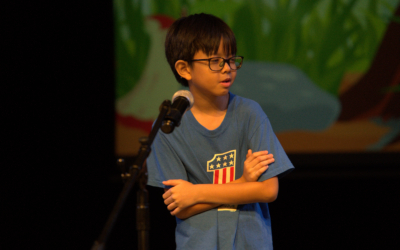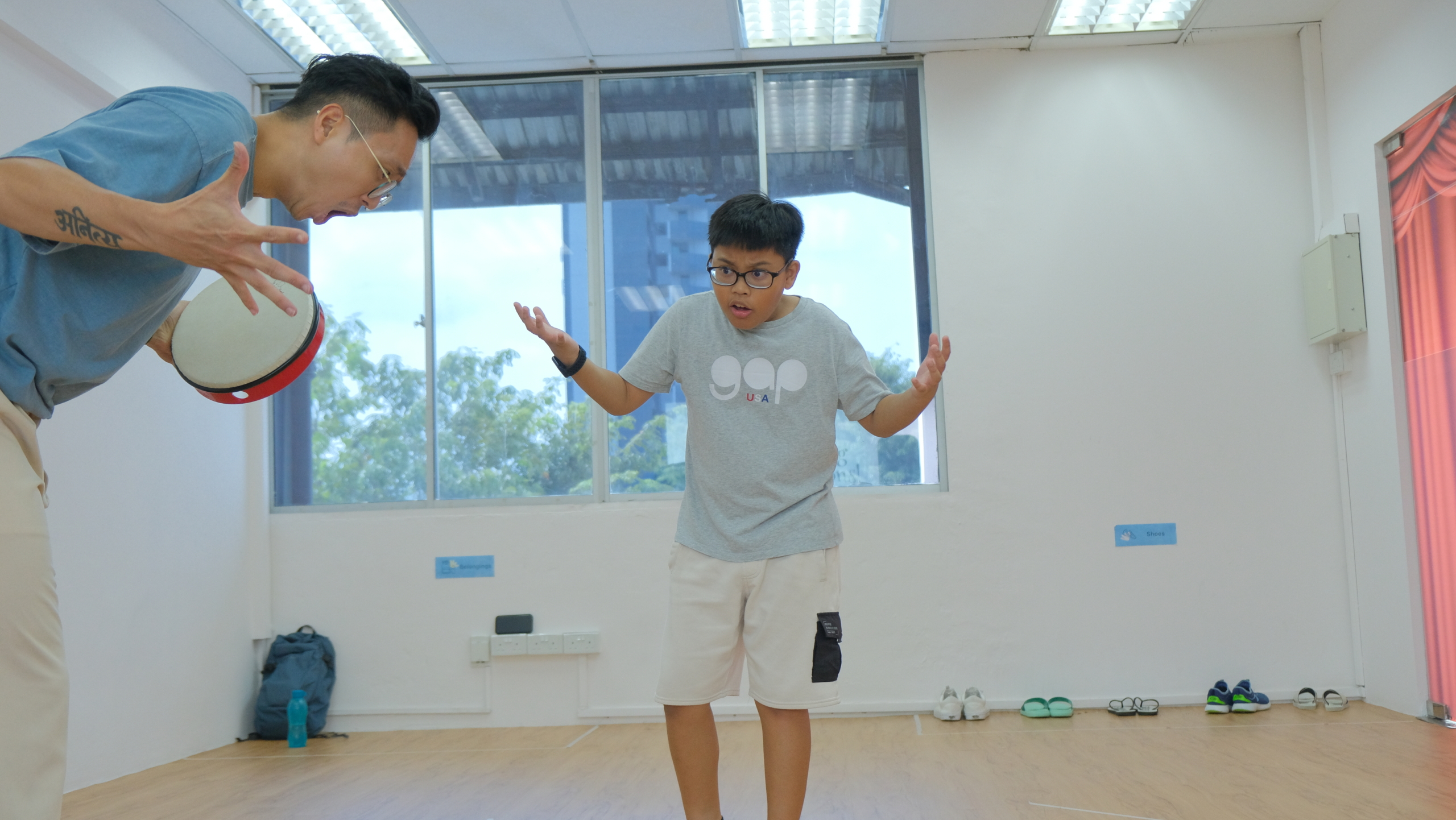How Young Is Too Young?
We know that children benefit tremendously from drama programmes. So, when is a good time to start? Is drama also suitable for toddlers (1 to 3 years old)?
Several characteristics punctuate a child’s development from 1-3 years of age. At aged 2, toddlers begin using symbols and language and display egocentrism. Here are three reasons that prove drama is not only suitable, but also beneficial for toddlers.
1. Drama encourages symbolic thought

Have you seen your child riding a broom like a horse? Maybe you’ve seen your child wearing a bucket like a hat. In each of these, an object is made to symbolise something.
Children as young as 2 years of age begin to develop the use of symbols. They learn to create and store mental images for use later. A broom is made a horse simply because the child transforms it using a mental image.
Whether it’s reading sentences strung by letters or solving mental equations at the cashier, the use of symbols is vital in everyday life. Drama for toddlers extends this development at an opportune age; it provides the space and resources that stimulate symbolic play.
2. Drama enhances language acquisition
Language is essential for communication. A good and early start to language learning will go a long way to ensuring that your child can communicate effectively!
Drama offers a language-filled environment through the use of simple songs and speech lines. In fact, dramatisation of scenarios in classes lends relevance and creates meaningful contexts for learning grammar and increasing vocabulary.
3. Drama promotes social interaction

Did you know that sharing is unnatural and even challenging for our little ones? Toddlers often play alone or alongside peers, but rarely together.
This is because toddlers are going through an egocentric phase. No, that’s not the same as being egotistical! Egocentrism is the tendency for a child to be unable to take on the perspective of another. When a toddler snatches a toy from a peer, he only sees that he wants the toy in his possession; he doesn’t understand how his actions might upset someone.
While egocentrism is completely normal, you can help to ease your child out of this phase by providing plenty of opportunities for social interactions.
Drama immerses your toddler in a fun and safe social environment that facilitates interaction amongst peers. Good drama programmes also present real-life scenarios for toddlers to negotiate challenging social situations and act out different solutions in a safe space.
That’s three reasons to get your toddler started in a drama programme. Catch us next week as we share what makes a good drama programme for toddlers!


